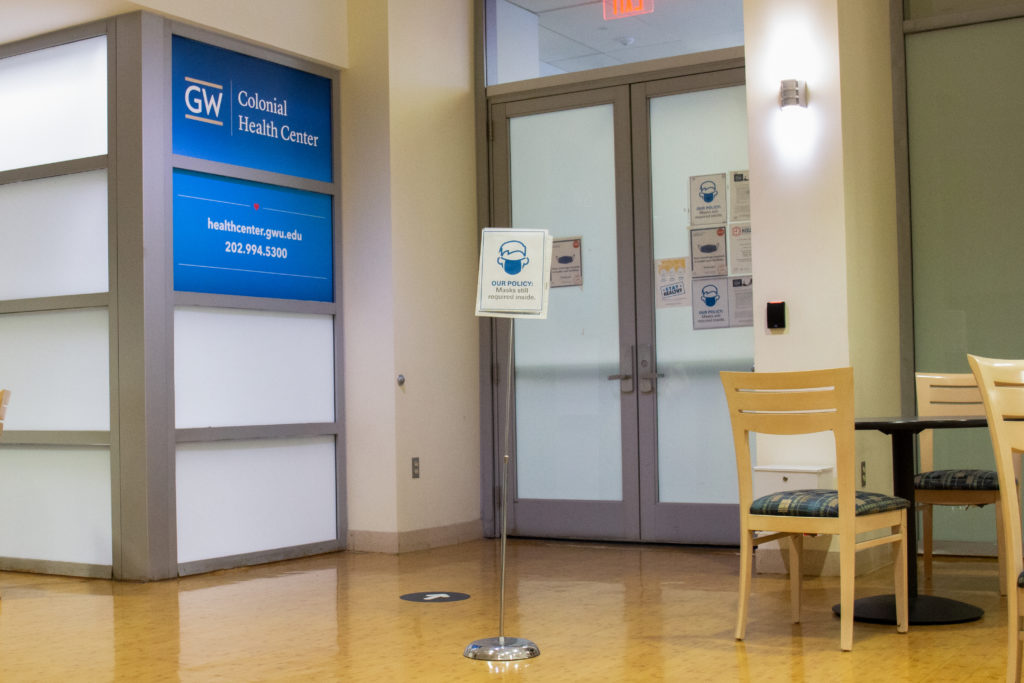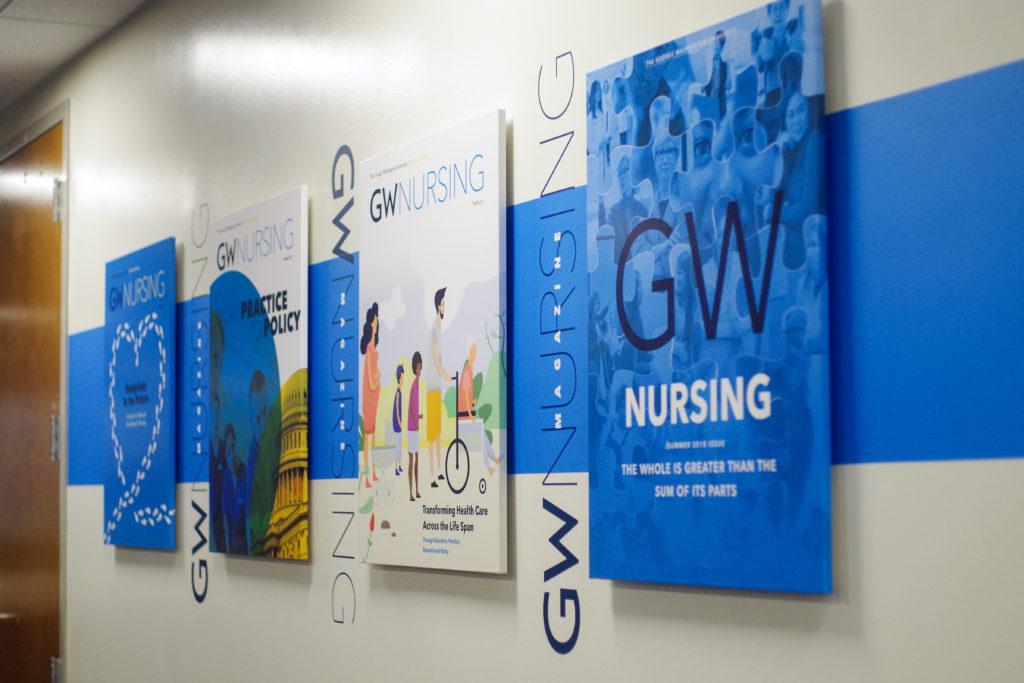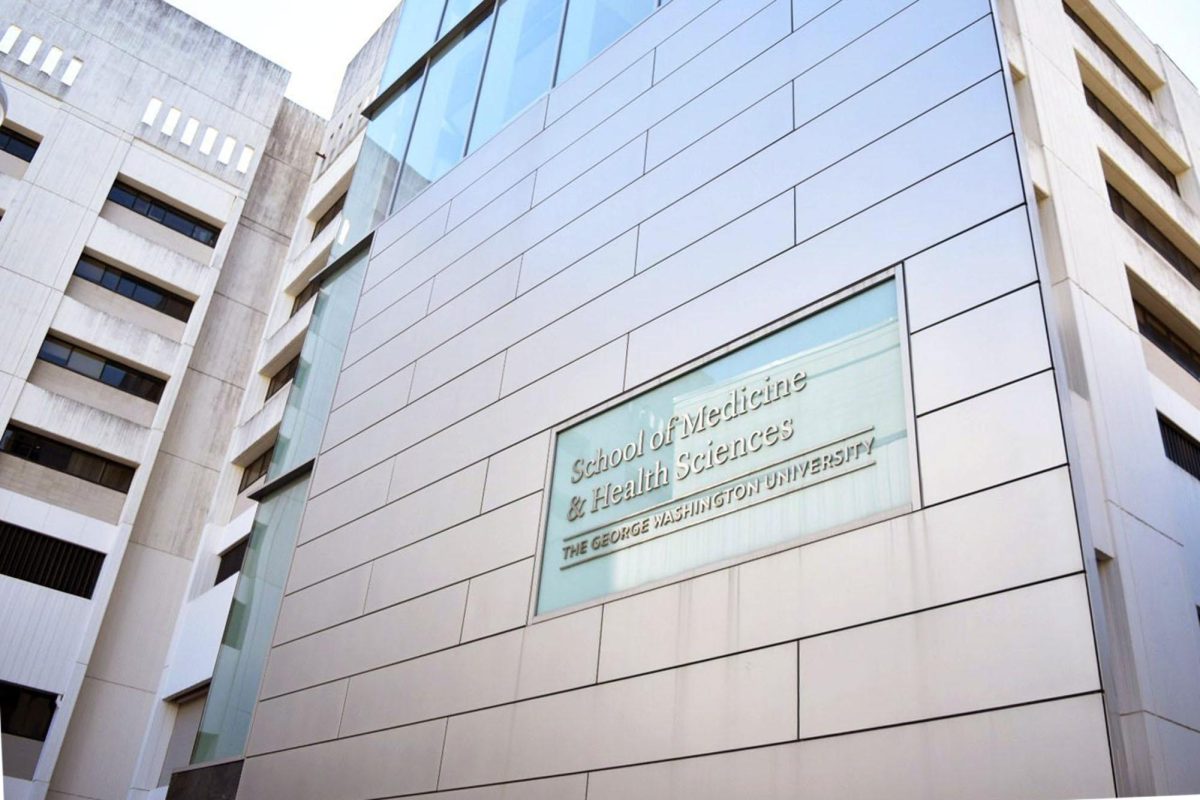The Student Health Center is treating patients for monkeypox on campus and educating GW community members about the spread of the disease after officials identified a “handful” of cases within the community.
Rebekka Christie, the medical director of the Student Health Center, said the SHC, formerly the Colonial Health Center, is assessing and quickly diagnosing suspected positive cases through a partnership with the D.C. Department of Health to shore up treatment and awareness of the disease in the local area. She said officials are aiming to educate students through presentations about monkeypox and other communicable diseases in an effort to prevent outbreaks on campus, but Christie declined to release the number of cases within the GW community.
Christie said the SHC’s medical services team has partnered with the health department to diagnose and treat the “handful” of cases within the GW community over the summer. Christie said each community member who contracted monkeypox recovered from the disease.
Officials reported GW’s first case of monkeypox within the GW community in late June.
Christie said the SHC plans to assess presumptive cases through telehealth appointments before bringing patients in for an in-person clinical evaluation.
“It is important to understand that monkeypox is an infection that every member of the GW community should be aware of because everyone is at risk for infection if exposed, regardless of sexual orientation or gender identity,” Christie said in an email.
Christie said the SHC refers patients with a high risk of exposure to the D.C. Department of Health for a vaccination and will provide access to the drug tecovirimat, whose brand name is Tpoxx, for monkeypox treatment to students with severe symptoms.
The Centers for Disease Control and Prevention and Federal Drug Administration last week authorized the Jynneos vaccine to be administered intradermally – a process of injecting the vaccine into the skin instead of the layer of fat underneath the skin – which increases the number of doses in each vial by five times.
Monkeypox is spread through direct and indirect contact with skin lesions or through respiratory droplets, most commonly through sexual interactions. Symptoms like fever or chills, headache, muscle aches, fatigue, rash and skin lesions can occur five to 21 days after exposure.
Christie said the SHC and the Capital Peers Sexual Health Task Force – a group of peer health educators that produce education and health promotion to the GW student body – will hold presentations and outreach programs about health and wellness in residence halls to raise awareness of monkeypox and other contagious diseases. She said the medical services team has educated staff about the virus throughout the summer to help them better understand “communicable diseases.”
She said officials from GW and other universities in the area – including Georgetown, American, Howard, Catholic, George Mason universities and the University of Maryland – receive updates on monkeypox, its health impacts in the city and the status of protocols from D.C. government representatives. Christie said the meetings are bi-monthly and hosted by the Consortium of Universities of the Washington Metropolitan Area, a group of local higher education institutions.
Christie said the SHC is not accepting walk-in visitors and recommends students to call the clinic if they are experiencing symptoms or have been exposed to the virus in an effort to mitigate transmission.
Officials earlier this month released their first public health update on monkeypox, saying the spread of the virus in the GW community remains “very low.”
There are more than 14,000 confirmed cases nationwide since the first case was documented in May, as of Aug. 18.
The White House declared monkeypox a public health emergency and announced new initiatives to increase access to care and resources in early August, a week after the World Health Organization declared monkeypox a public health emergency of international concern late last month.
D.C. Health offers monkeypox vaccines to adult residents, employees, college students and patients in D.C. who’ve had multiple sexual partners in the last two weeks, sex workers and staff at establishments where sexual activity occurs.
D.C. Health reported 350 positive cases and vaccinated more than 16,000 individuals for monkeypox in the District as of Aug. 16. D.C. Health runs walkup vaccine clinics in Ward 2, 4 and 8 on a first-come, first-serve basis.
Georgetown and American universities have both identified presumptive cases of monkeypox and have provided information to their respective communities to reduce the transmission of the virus over the summer.
Experts in infectious disease and epidemiology said universities should expect monkeypox cases to rise and make students and faculty aware of the risk the virus poses through accurate information and education about symptoms and treatments associated with monkeypox.
Amesh Adolja, a senior scholar at the Johns Hopkins Center for Health and an infectious disease physician, said monkeypox won’t be as “impactful” on college campuses as COVID-19, but colleges should be prepared to log cases and limit spread. He said most people who contract the virus don’t typically need supportive care, but some patients do respond to treatment from the antiviral drug Tpoxx.
“The key is just making sure that these [treatments] are available to people and that people are aware of the risk and that universities take proactive steps in the event that they do have a case or exposure on their campus,” Adolja said.
Adolja said the virus is quickly spreading among men who have sex with men, and people must ensure that individuals in that group are aware of the high transmission rates.
“There’s a tendency to look at every infectious disease emergency through the lens of COVID-19,” Adolja said. “They are not going to be like COVID-19, and monkeypox is a disease that’s been known to science since the 1950s for which we have a vaccine antiviral in testing.”
Andrew Brouwer, an assistant research scientist in the Department of Epidemiology at the University of Michigan, said college campuses have the potential to be “transmission hotspots” because young adults typically have a higher number of sexual partners and most transmission of the virus has occurred because of sexual interactions in the current outbreak. He said there is a potential for spread through close proximity in residence halls, sports and parties because the virus can also spread through non-sexual skin-to-skin contact, surfaces and linens.
“Just because those routes of transmission are possible, does not mean that they are likely,” Brouwer said in an email. “We need to watch for changing guidance as the outbreak continues.”
Brouwer said the University of Michigan has not reported any monkeypox cases, but the university is prepared to treat and test possible cases and vaccinate priority groups. He said the best way to stop transmission is to interrupt transmission chains and practice safe sex.
Brouwer said arguments about classifying monkeypox as a sexually transmitted infection are not “productive” even though the majority of transmission has occurred through sexual interactions and awareness about an individual’s current risk of contracting the virus is crucial in understanding monkeypox.
“It is important to have compassion for people that are infected,” Brouwer said. “It is often stigmatizing to have a disease (we saw a lot of shaming in the COVID-19 pandemic) and that is especially true for a disease that can be transmitted through sexual contact.”








